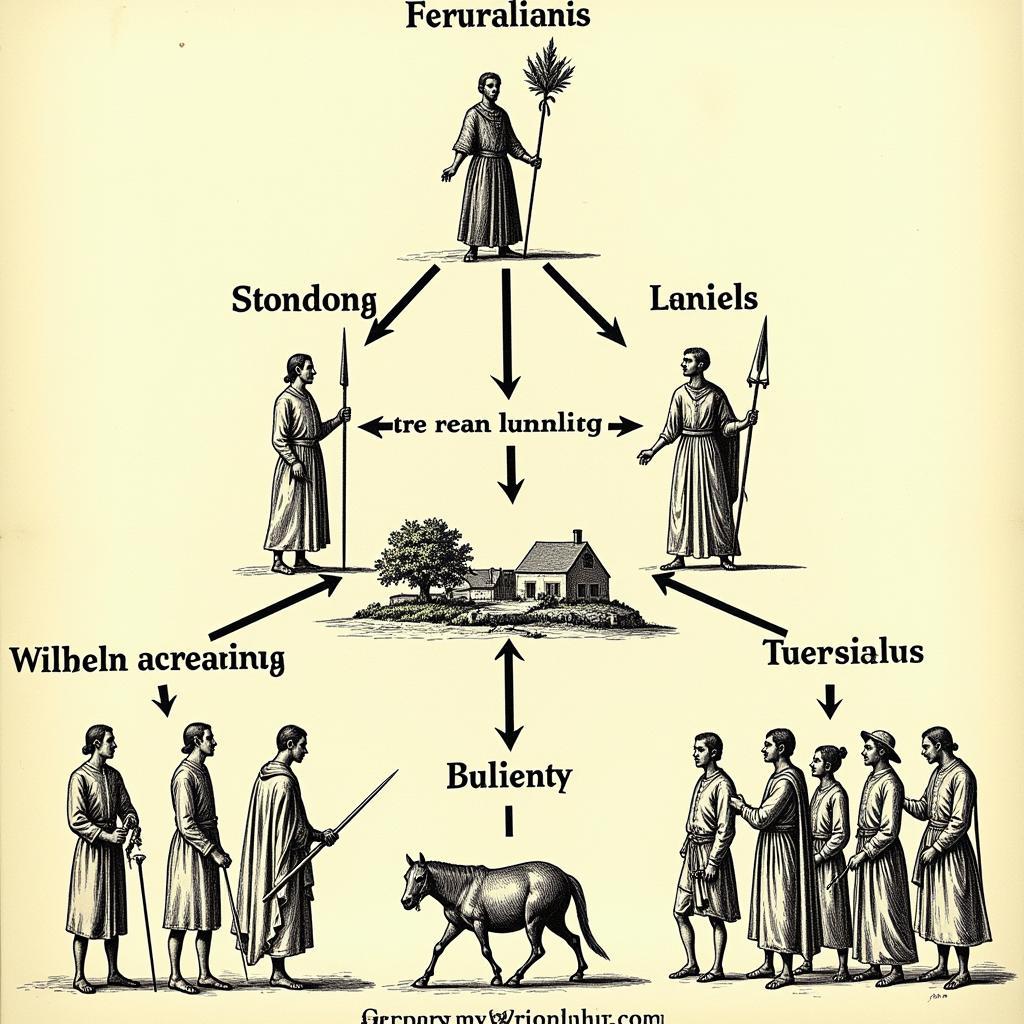Robert Heilbroner’s The Making of Economic Society provides a sweeping overview of economic history, from the earliest forms of economic organization to the complexities of modern capitalism. This seminal work, first published in 1962, offers valuable insights into the evolution of economic systems and their impact on societies throughout history. It explores how different economic structures have emerged, adapted, and shaped human civilization.
The Core Concepts in Heilbroner’s The Making of Economic Society
The Making of Economic Society delves into the fundamental mechanisms driving economic change. Heilbroner skillfully weaves together historical narratives with economic theory, providing a comprehensive understanding of how economic systems function and evolve. He explores the transition from traditional economies based on custom and tradition to market-driven systems, highlighting the role of technological innovation, social structures, and political forces.
- Historical Context: The book emphasizes the importance of understanding the historical context in which economic systems develop. It examines how factors like geography, culture, and political institutions influence the trajectory of economic growth and development.
- Modes of Production: Heilbroner analyzes different “modes of production,” such as feudalism, mercantilism, and capitalism, explaining their unique characteristics and how they have shaped societies.
- Economic Growth and Development: A central theme is the process of economic growth and development. Heilbroner explores the factors that contribute to economic expansion, including technological advancements, capital accumulation, and changes in social organization.
- The Role of the State: The book also examines the role of the state in economic life, exploring how governments have intervened in markets, regulated industries, and provided social welfare programs.
 Feudal Economic System Depiction
Feudal Economic System Depiction
Exploring the Key Themes of The Making of Economic Society
Heilbroner’s work is more than a mere historical account; it offers a framework for understanding the complex interplay between economic structures and human behavior. He examines the social and political consequences of economic change, highlighting the impact on inequality, social mobility, and political power. By examining these themes, The Making of Economic Society provides readers with the tools to critically analyze the economic challenges facing the world today.
- The Impact of Technology: Heilbroner underscores the transformative power of technological innovation in shaping economic systems. He analyzes how technological advancements have led to increased productivity, changes in the division of labor, and the emergence of new industries.
- The Evolution of Capitalism: The book provides a detailed analysis of the evolution of capitalism, tracing its origins from early market economies to the rise of industrial capitalism and the complexities of modern financial systems.
- Challenges of Economic Development: Heilbroner also explores the challenges faced by developing countries in achieving economic growth and improving living standards. He examines the role of international trade, foreign aid, and domestic policies in promoting economic development.
 Industrial Revolution Impact Visualization
Industrial Revolution Impact Visualization
Heilbroner’s Legacy and Relevance Today
The Making of Economic Society remains a highly influential work in the field of economics. Its accessible prose and insightful analysis have made it a valuable resource for students and scholars alike. Heilbroner’s ability to connect economic theory with historical context provides readers with a deeper understanding of the forces shaping the world around them.
- Understanding Economic History: The book offers a clear and concise introduction to the history of economic thought and the evolution of economic systems.
- Critical Analysis of Capitalism: Heilbroner’s analysis of capitalism encourages readers to critically examine the strengths and weaknesses of market-driven economies.
- Relevance in the 21st Century: While written decades ago, The Making of Economic Society continues to offer valuable insights into contemporary economic issues, such as globalization, inequality, and the role of technology.
Conclusion: The Enduring Value of Heilbroner’s Work
Robert Heilbroner’s The Making of Economic Society offers a profound exploration of the historical development and societal impact of economic systems. By understanding the past, we gain valuable insights into the present and can better navigate the future. This book remains an indispensable resource for anyone seeking to understand the complex world of economics and its profound influence on human civilization.
FAQ
- What is the main argument of The Making of Economic Society? The book argues that economic systems are not static but constantly evolve, shaped by historical, social, and technological forces.
- Why is this book still relevant today? While focused on historical development, the book’s analysis of economic systems and their societal impact provides a framework for understanding contemporary issues.
- What are the key concepts introduced in the book? Key concepts include modes of production, the role of technology, and the evolution of capitalism.
- Who is the intended audience for this book? The book is accessible to both students and general readers interested in economic history and theory.
- How does Heilbroner’s work contribute to the understanding of economics? It provides a historical context for economic theory, making it more engaging and relevant.
- What are some criticisms of Heilbroner’s approach? Some critics argue that Heilbroner oversimplifies complex economic phenomena.
- What are some other books by Robert Heilbroner? Other notable works include The Worldly Philosophers and An Inquiry into the Human Prospect.
Need support? Contact us 24/7: Phone: 02043854663, Email: [email protected], or visit us at Khu 34, Bắc Giang, 260000, Vietnam.